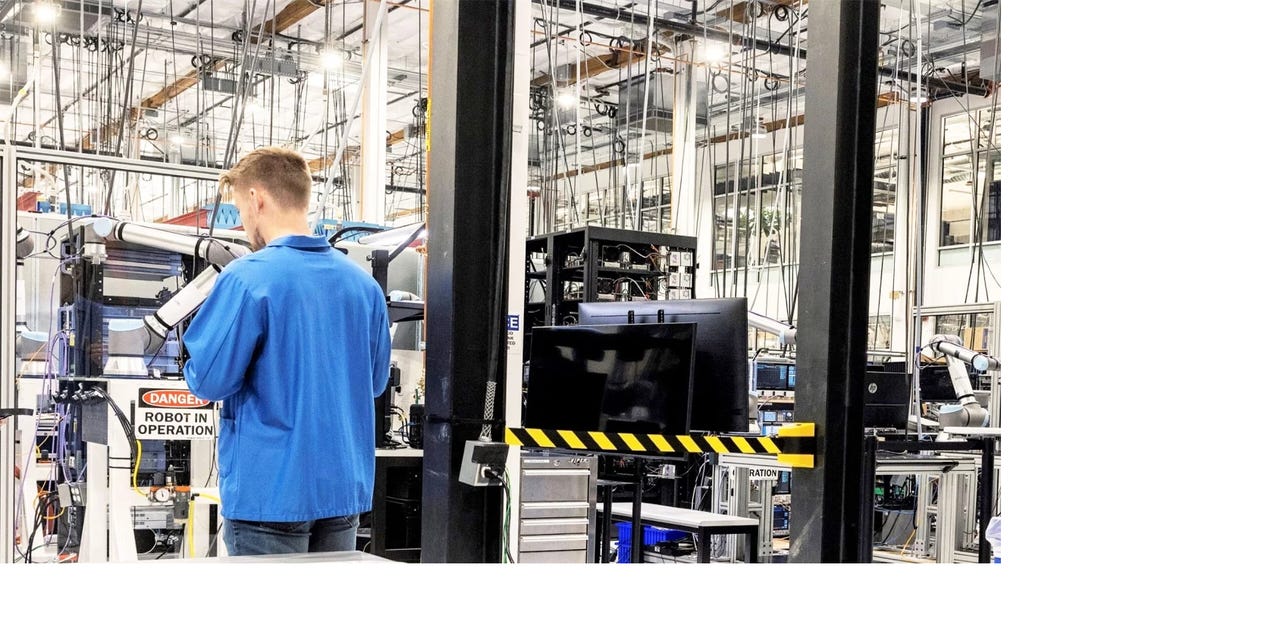































 Image: Amazon
Image: Amazon Amazon on Thursday announcedplans to open a massive new facility in the Seattle area to build satellites for Project Kuiper, its planned satellite internet service.
The new 172,000-square-foot satellite production facility in Kirkland, Washington will allow Amazon to produce as many as four satellites per day, the company said. This scale of production capacity will help Amazon reach its goal of launching a constellation of 3,236 satellites to provide fast, affordable broadband to customers globally.
Amazon announced Project Kuiper in 2019 and already has one219,000-square-foot research and development facility in Washington that's dedicated to the project.
"To deliver on our vision for the project, we need to operate on a much larger scale," Amazon's blog post said. "That requires dedicated manufacturing space."
Also:NASA kicks off UFO study with a 16-member team
Amazon designed and developed its own Project Kuiper satellites in-house, and the new manufacturing facility will give the company additional control over the production and testing process. "By centralizing operations here in Puget Sound, we can also ensure close coordination between design and development teams in Redmond and manufacturing teams in Kirkland," Amazon said.
By early 2023, Amazon aims to send two prototype satellites into space with the help of the company United Launch Alliance (ULA). Along with ULA, Amazon already has contracts signed with three other space-launch companies -- Arianespace, Blue Origin (the rocket company started by Amazon founder Jeff Bezos), and ABL Space Systems -- to deliver its production satellites into low-Earth orbit (LEO).
The scale of Amazon's plans demonstrates the swift growth of the private space industry. As of January 1, 2022, there were only 4,852 operating satellites in space, including 4,078 in LEO.
Washington state has had a robust aerospace industry for more than a century, and the new facility should create more than 200 highly skilled aerospace and manufacturing jobs in the Puget Sound region, Amazon said.
Amazon currently has more than 1,000 people working on the Project Kuiper program. The company expects its existing business operations and areas of expertise to give Project Kuiper some competitive advantages. For instance, the broadband service could leverage Amazon's global logistics and operations footprint for customer service, while Amazon Web Services will provide the networking and infrastructure necessary to serve a diverse, global customer base.
So far, Amazon hasn't tapped SpaceX, Elon Musk's rocket company, to launch any of its satellites. Starlink, SpaceX's broadband satellite service, already has thousands of satellites in orbit and hundreds of thousands of subscribers. Still, SpaceX has committed to launching competing satellites into space
 Tags quentes :
Inovação
Espaço
Tags quentes :
Inovação
Espaço